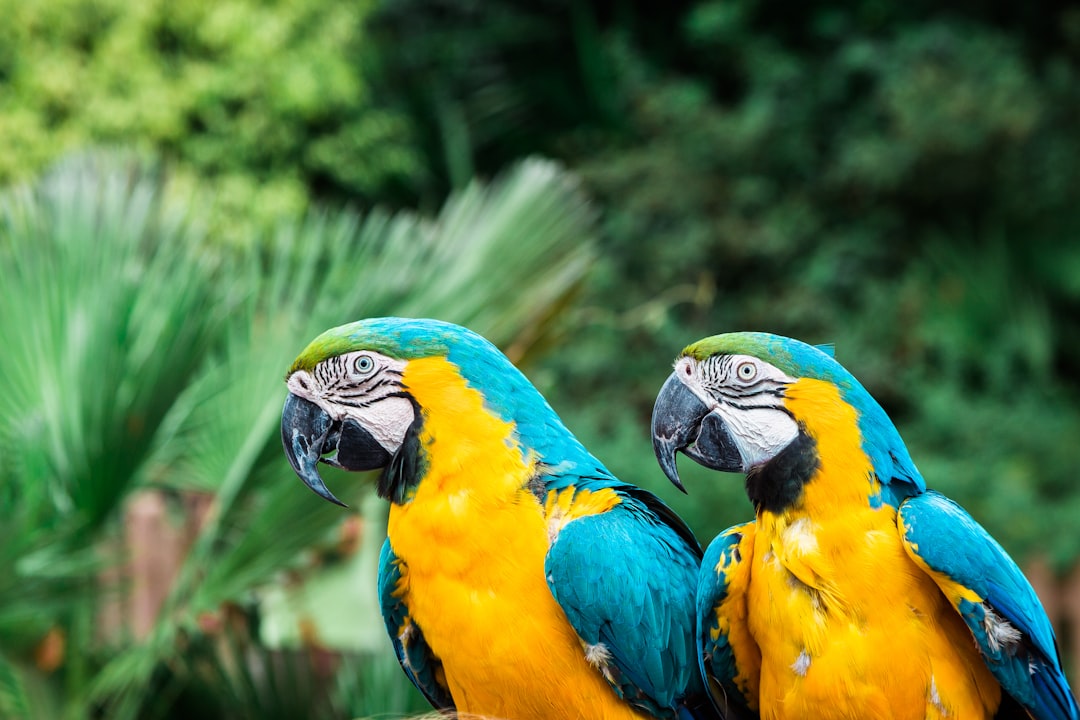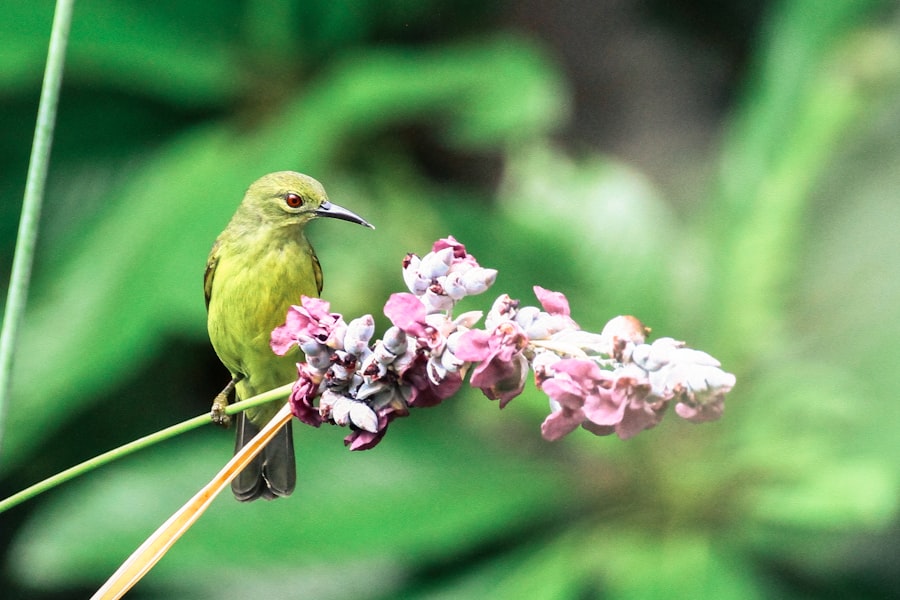Protect Your Garden: Tips to Keep Birds Away

Bird control is an important aspect of maintaining a healthy and thriving garden. While birds can be a beautiful addition to any outdoor space, they can also cause significant damage to plants and crops. In this article, we will explore the various methods and techniques for bird control in gardens, including non-lethal methods, bird repellent techniques, physical barriers, and creating bird-free zones. By implementing these strategies effectively, gardeners can protect their plants and ensure a bountiful harvest.
Key Takeaways
- Bird control in gardens is important to protect plants and crops from damage.
- Common garden birds include sparrows, finches, and robins, and they have different feeding and nesting habits.
- Garden birds can provide benefits such as pollination and pest control, but they can also cause damage to plants and spread diseases.
- Harmful effects of birds on gardens include eating fruits and vegetables, damaging flowers, and leaving droppings that can spread diseases.
- Non-lethal bird control methods for gardens include scare tactics, noise deterrents, and visual repellents.
Common Garden Birds and Their Habits
There are several common garden birds that gardeners may encounter. These include sparrows, starlings, pigeons, blackbirds, and crows. Each of these birds has its own habits and behaviors when it comes to gardens.
Sparrows are small birds that are known for their ability to adapt to various environments. They often build nests in trees or shrubs and feed on seeds, insects, and fruits. Starlings are larger birds that are known for their loud and melodious songs. They can be found in gardens searching for insects and fruits to eat.
Pigeons are another common garden bird that can cause significant damage to plants. They often feed on seeds, grains, and fruits and can quickly decimate a crop if left unchecked. Blackbirds are known for their distinctive black feathers and yellow eyes. They feed on insects, worms, berries, and fruits.
Crows are large birds that are highly intelligent and resourceful. They have been known to raid gardens for seeds, fruits, and even small animals. Understanding the habits and behaviors of these common garden birds is essential for effective bird control.
The Benefits and Drawbacks of Garden Birds
While birds can be a nuisance in gardens, they also provide several benefits. One of the main benefits of having birds in gardens is their ability to control pests. Many birds feed on insects, worms, and other pests that can damage plants. By attracting birds to your garden, you can naturally control pest populations and reduce the need for chemical pesticides.
Birds also play a crucial role in pollination. They help to transfer pollen from one flower to another, which is essential for the reproduction of many plants. Without birds, some plants would struggle to reproduce and produce fruits or seeds.
However, there are also drawbacks to having birds in gardens. One of the main drawbacks is the damage they can cause to plants and crops. Birds can eat fruits, seeds, and young shoots, leading to reduced yields and stunted growth. They can also peck at leaves and flowers, causing aesthetic damage.
Harmful Effects of Birds on Gardens
| Harmful Effects of Birds on Gardens | Description |
|---|---|
| Seed and Fruit Damage | Birds can eat or damage seeds and fruits, reducing the yield of plants and trees. |
| Plant Damage | Birds can peck at leaves, flowers, and buds, causing damage to the plant’s growth and appearance. |
| Soil Erosion | Birds can scratch and dig in the soil, causing erosion and exposing plant roots. |
| Spread of Weeds | Birds can spread weed seeds through their droppings, leading to the growth of unwanted plants in the garden. |
| Spread of Diseases | Birds can carry and spread diseases that can infect plants and other animals in the garden. |
Birds can cause significant damage to gardens if left unchecked. They can eat fruits and vegetables, peck at leaves and flowers, and even dig up newly planted seeds. Some birds, such as pigeons and crows, can decimate an entire crop if not properly controlled.
Certain types of plants and crops are more vulnerable to bird damage than others. Fruits such as berries, cherries, and grapes are particularly attractive to birds due to their sweetness. Vegetables such as corn, peas, and lettuce are also commonly targeted by birds.
In addition to direct damage to plants and crops, birds can also spread diseases through their droppings. These droppings can contaminate soil and water sources, leading to the spread of bacteria and parasites.
Non-lethal Bird Control Methods for Gardens
There are several non-lethal bird control methods that gardeners can use to deter birds from their gardens. These methods are designed to make the garden less attractive or accessible to birds without causing harm.
One effective method is the use of visual deterrents. These include scarecrows, reflective tape or balloons, and predator decoys. Birds are often scared away by the presence of these visual deterrents, as they mimic the presence of predators or signal danger.
Another non-lethal method is the use of sound deterrents. These include devices that emit loud noises or play recordings of bird distress calls. Birds are often startled by these sounds and will avoid the area.
Bird Repellent Techniques for Gardens

Bird repellent techniques can also be used to deter birds from gardens. These techniques involve the use of substances or materials that birds find unpleasant or irritating.
One common bird repellent is the use of taste deterrents. These substances are applied to plants or crops and make them unpalatable to birds. Examples include hot pepper sprays, garlic sprays, and vinegar solutions.
Another effective bird repellent is the use of scent deterrents. Birds have a highly developed sense of smell and can be deterred by strong odors. Examples of scent deterrents include mothballs, citrus peels, and essential oils.
Physical Barriers to Keep Birds Away from Gardens
Physical barriers can be used to keep birds away from gardens. These barriers are designed to prevent birds from accessing plants and crops, making them less likely to cause damage.
One common physical barrier is netting. This involves covering plants or crops with a fine mesh netting that birds cannot penetrate. Netting is particularly effective for protecting fruits and vegetables from bird damage.
Another physical barrier is fencing. This involves erecting a fence around the garden to keep birds out. The fence should be tall enough to prevent birds from flying over it and should have small enough gaps to prevent birds from squeezing through.
Creating Bird-Free Zones in Gardens
Creating bird-free zones in gardens can be an effective way to protect vulnerable plants and crops. These zones are areas where birds are not allowed to enter, providing a safe space for plants to grow undisturbed.
One way to create a bird-free zone is to use bird feeders or birdhouses. By providing birds with an alternative food source or nesting site, they are less likely to venture into the garden.
Another method is to use physical barriers, such as fences or netting, to create a designated bird-free area. This area can be used to grow particularly vulnerable plants or crops that are at high risk of bird damage.
Best Practices for Bird Control in Gardens
To effectively control birds in gardens, it is important to follow some best practices. These practices will help ensure that the chosen methods and techniques are implemented effectively.
One best practice is to regularly monitor the garden for signs of bird damage. This includes checking for pecked fruits, damaged leaves, or evidence of bird droppings. By identifying the problem early on, you can take action before the damage becomes severe.
Another best practice is to rotate bird control methods. Birds can quickly become accustomed to certain deterrents, rendering them ineffective over time. By rotating methods and techniques, you can keep birds on their toes and prevent them from becoming habituated.
Conclusion and Final Thoughts on Bird Control in Gardens
In conclusion, bird control is an important aspect of maintaining a healthy and productive garden. While birds provide several benefits, they can also cause significant damage to plants and crops. By implementing non-lethal methods, using bird repellents, installing physical barriers, and creating bird-free zones, gardeners can effectively control birds and protect their gardens. By following best practices and regularly monitoring for signs of bird damage, gardeners can ensure a bountiful harvest and a thriving garden.
If you’re struggling with keeping birds out of your garden, you’re not alone. These feathered creatures can wreak havoc on your plants and flowers. However, there are effective methods to deter them from causing any damage. One helpful resource is an article titled “10 Ways to Keep Birds Out of Your Garden” from Lawn World. This comprehensive guide provides practical tips and techniques to protect your garden from unwanted avian visitors. From using scare tactics to creating physical barriers, this article offers valuable insights on maintaining a bird-free garden. Check it out here for expert advice on preserving the beauty of your outdoor space.
FAQs
What are some common birds that can damage a garden?
Some common birds that can damage a garden include sparrows, pigeons, crows, and blackbirds.
What are some effective ways to keep birds out of a garden?
Some effective ways to keep birds out of a garden include using bird netting, scare tactics such as fake predators or reflective tape, physical barriers like fences or spikes, and planting bird-resistant plants.
Is it legal to harm or kill birds that are damaging a garden?
No, it is illegal to harm or kill birds that are damaging a garden. Birds are protected by federal and state laws, and there are fines and penalties for harming or killing them.
Can bird feeders attract birds to a garden?
Yes, bird feeders can attract birds to a garden. It is important to place bird feeders away from the garden to avoid attracting birds that may damage plants.
Are there any natural ways to keep birds out of a garden?
Yes, there are natural ways to keep birds out of a garden. Some natural methods include using decoys of natural predators, planting bird-resistant plants, and using bird-repellent scents like peppermint or citrus.



